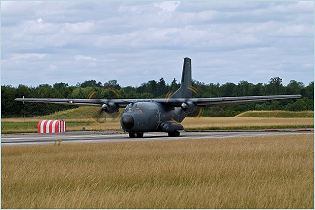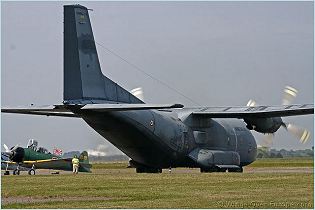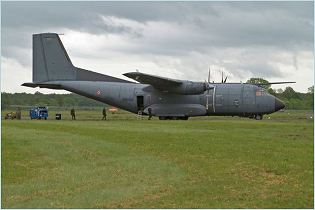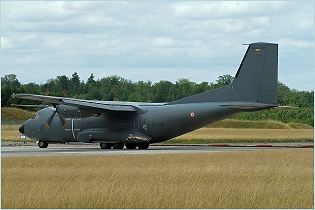C-160 Transall
| a | ||||||||||||||||||||||
|
C-160 Transall military transport aircraft
|
||||||||||||||||||||||
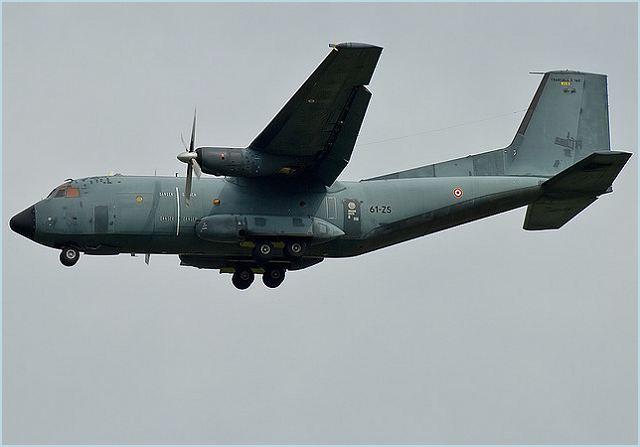 |
||||||||||||||||||||||
|
|
||||||||||||||||||||||
|
The Transall C-160 is a military transport aircraft developed by a consortium of French and German aircraft manufacturers for the air forces of those two nations and that of South Africa. The original Transall (Transporter Allianz) group was formed in January 1950 and this now comprises Aerospatiale in France with Messschmitt-Bolkow-Blohm and Vereinigte Flugtechnische Werke in Germany. This group built the Transall C.160 twin-turboprop transport for the air forces of France (50 C.160F), West Germany (90 C.160D), Turkey (20 C.160T) and South Africa (nine C.160Z) before production ended in 1972. In addition, four C.160Fs were converted for use by Air France in night mail operations with the revised designation C.160P. The C-160 Transall can accommodate 93 troops, or 61 88 fully-equipped paratroops, or 62 stretchers with four attendants, or vehicles and/or cargo to a maximum weight of 16,000 kg. Production of the aircraft from 1976 to 1985 included updated avionics, a reinforced wing housing and additional fuel tanks. The C-160 fleets of France, Germany, South Africa and Turkey will be replaced by the Airbus Military A400M transport when that enters service. France has 55 aircraft still in service, Germany 85 and Turkey 19. |
||||||||||||||||||||||
|
Main variants:
- C-160 Astarte communications aircraft: equipped with unjammable VLF communications including a Rockwell VLF transmitter and a Thales communications centre. The VLF system includes dual trailing wire antennae. - C-160 Gabriel ELINT electronic surveillance aircraft: with workstations and computer systems for ten elint (electronic intelligence) and comint (communications intelligence) mission crew. |
||||||||||||||||||||||
| Technical Data | ||||||||||||||||||||||
| Design | ||||||||||||||||||||||
|
The C-160 Transall is a high-wing monoplane with a pressurized interior, this aircraft incorporates a door/ramp in the upswept rear fuselage and paratroop deployment doors on each side of the fuselage. The fuselage is long, thick, and tapered to the rear with a round, solid nose, stepped cockpit and upswept tail section. The tail flats are mid-mounted on a thinned body, equally tapered with blunt tips. The fin is tall and tapered with a blunt tip and a fairing in the leading edge. The cockpit accommodates four crew, the pilot, co-pilot, engineer and navigator.
|
||||||||||||||||||||||
| Avionics | ||||||||||||||||||||||
|
The French Air Force C-160 aircraft was completely upgraded with modern avionics suite and new anti-missile countermeasures between 1994 and 1999. The latest version of C-160 Transall are equipped with a new head-up display and an upgraded electronic warfare suite, with a radar warning receiver, missile approach warner and chaff and decoy dispensers.
|
||||||||||||||||||||||
| Propulsion | ||||||||||||||||||||||
|
Two turboprop engines Rolls-Royce Tyne RTy.20 Mk 22 are mounted under and extend beyond the wings leading. The C-160 Transall can fly at a maximum speed of 513 km/h and has a maximum range of 1,850 km with maximum payload.
|
||||||||||||||||||||||
| Accessories | ||||||||||||||||||||||
|
The C-160 Ttransall is equipped with an in-flight refuelling probe mounted above and behind the flight deck.
|
||||||||||||||||||||||
| Specifications | ||||||||||||||||||||||
|
||||||||||||||||||||||
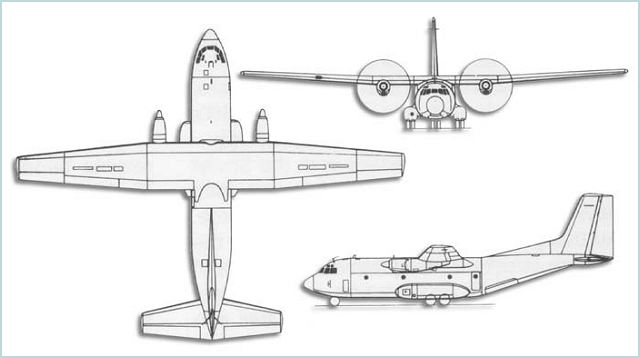 |
||||||||||||||||||||||
|
||||||||||||||||||||||



























